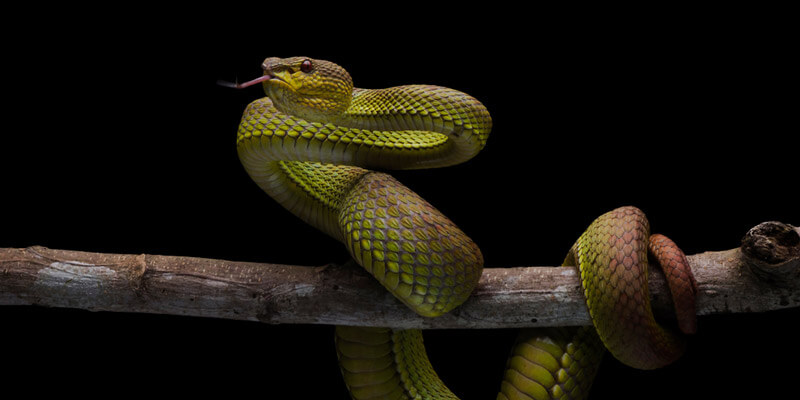The night’s adrenaline-spiking hissing or rattling sound is hard to ignore. So, it leaves us concerned about our safety and asking an important question, “Do snakes make noise at night?”
Here’s a simple answer: No, most snakes make little to no sound at night, including the most aggressive and largest snakes. However, there are a couple of exceptions. Only a few snakes make shrieking, growling, rattling, and hissing sounds when they feel threatened or need to appear scary.

By now, you should have figured out that there’s more to that night’s adrenaline-spiking sound. This post aims to provide comprehensive answers to essential questions.
Snake Noise: What Kind of Sounds Do Snakes Make?
Since we’ve established that the vast majority of snakes are silent, let’s check out the sounds the minority make and understand the origin of such sounds.

Hissing
The hissing sound, like singing and speaking, requires the animal to pass air via its glottis in its throat.
Shrieking
The shrieking noise sounds like a strong wind. Pine snakes are known to make shrieking sounds because of the presence of a vocal cord.
Growling
Certain species of snake can growl. However, they growl when in a threatening situation. For instance, cobras tend to stand on their tails and growl when threatened by another animal or human. Remember that a snake’s growling sound is quite different and unique, just as lions and dogs do not share an exact growling sound. Nonetheless, it sounds close enough to precedented ones.
Farting
This noise is common among young snakes. They create this type of snake noise by passing air via their cloaca. This farting noise is not so different from the human fart sound. Also, it’s referred to as cloacal popping because the forcefully expelled sound from their cloaca has a pop sound.
Squeaking
When you hear a squeaking sound, there’s a high chance of it coming from a python. However, this sound is associated with respiratory issues.
Rattling
A rattlesnake has its shells, feathers, and hair made of keratin, a complex protein form. These rattles are loosely interlocked and make rattling sounds as these parts hit one another, causing a bumping noise. Rattlesnakes shake their rattles up to 100 times per second because of their strong muscles in tense situations.
Do snakes make loud noises at night or during eluding situations?
Most snakes are diurnal, Which means they are not active at night. Only a few snakes are nocturnal. So if the majority of the snakes are sleeping at night, then it means the noise is likely not coming from the snakes.
However, there are different snake sounds made for specific reasons. For instance, a male snake might make a grunting noise during copulation. Also, cobras stand on their tails and make growling noises to scare away the threat.
Generally speaking, snakes don’t go about making noises like other animals. These wavy-moving animals make noise in extreme tension situations.
The Importance of Snake in the Environment
Every animal plays a vital role in the web of life, and snakes are not exempted. They are exclusively carnivores, which makes them predators of rodents, crabs, etc snakes help maintain the delicate balance of life.
For instance, snakes are attracted to the massive supply of food when there is an invasion of rodents. Consequently, the number of rodents will drop. Also, birds and other snake-eating animals are unintentionally invited to feast on these snakes.
Both the removal and introduction of snakes have a surprising effect on the economy and ecosystem. Without snakes, our homes and businesses might be overwhelmingly invaded by rodents, crickets, cockroaches, etc. The consequences of this action can be costly.
Related FAQs
No, this misconception is that snakes stick their tongues out and make a sound. The tongues have a different purpose – smelling their surroundings for food. The hissing and rattling sound you hear comes from the glottis of the animal. However, this sound is created while flicking the tongues, which explains the common misconception.
Snakes do not have ears. However, they articulate their intention to other animals, usually as a warning sign. The vocalization is not to inform other snakes of a threat or food source but to send a warning message to animals with ears.
Most snakes lack vocal cords, but they have a small larynx, limiting their vocalization to growling and hissing.
Conclusion
Snakes are diurnal animals, meaning at night, they have a good night’s rest after a hectic day’s activities. So, it’s less likely that the terrifying noise you hear is coming from snakes.
Suppose the noise interferes with your night’s sleep. In that case, we suggest avoiding areas concentrated with nocturnal animals such as coyotes and owls. Also, you might try closing your windows to attenuate the noise level of insects and frogs.
